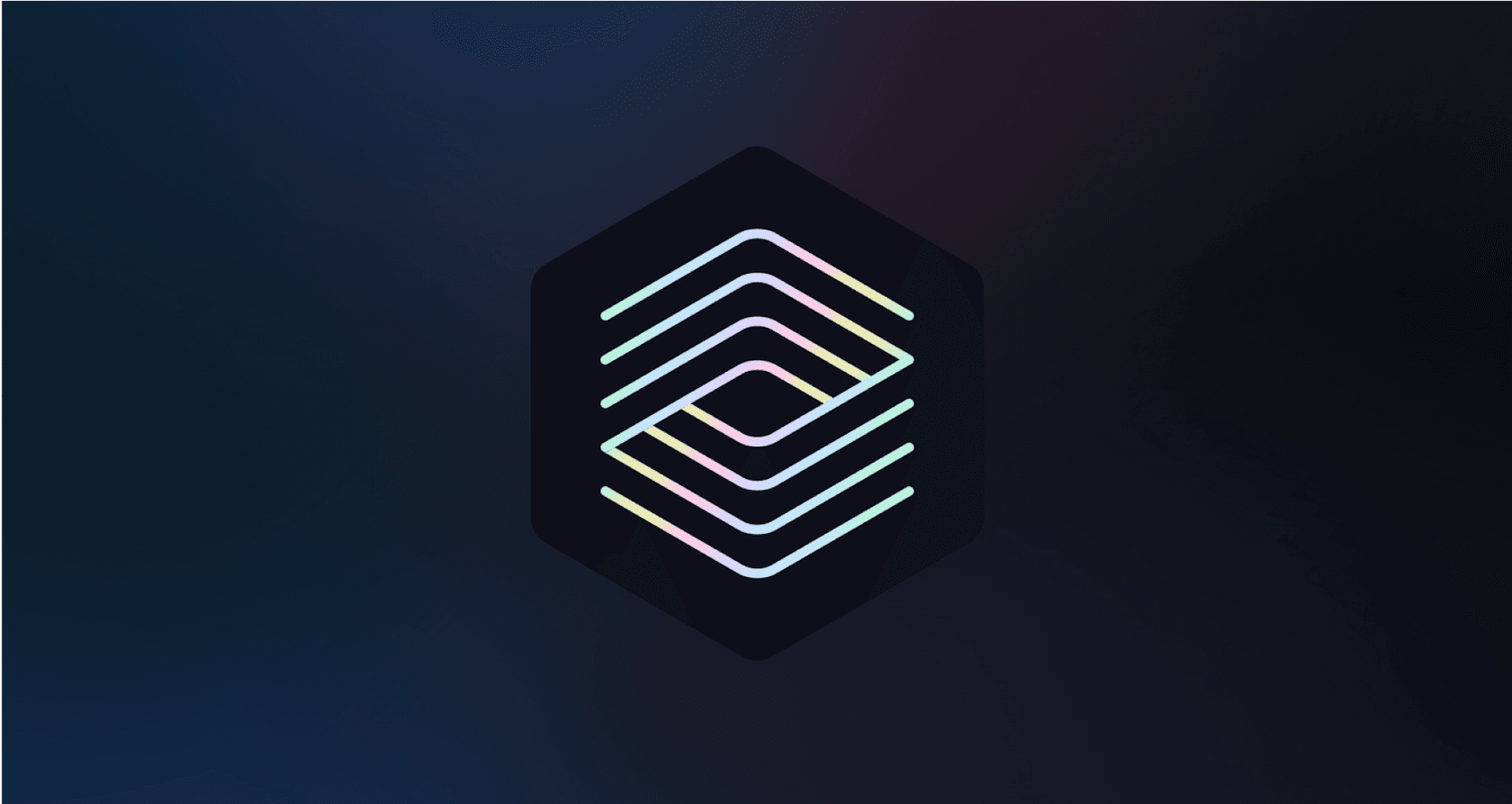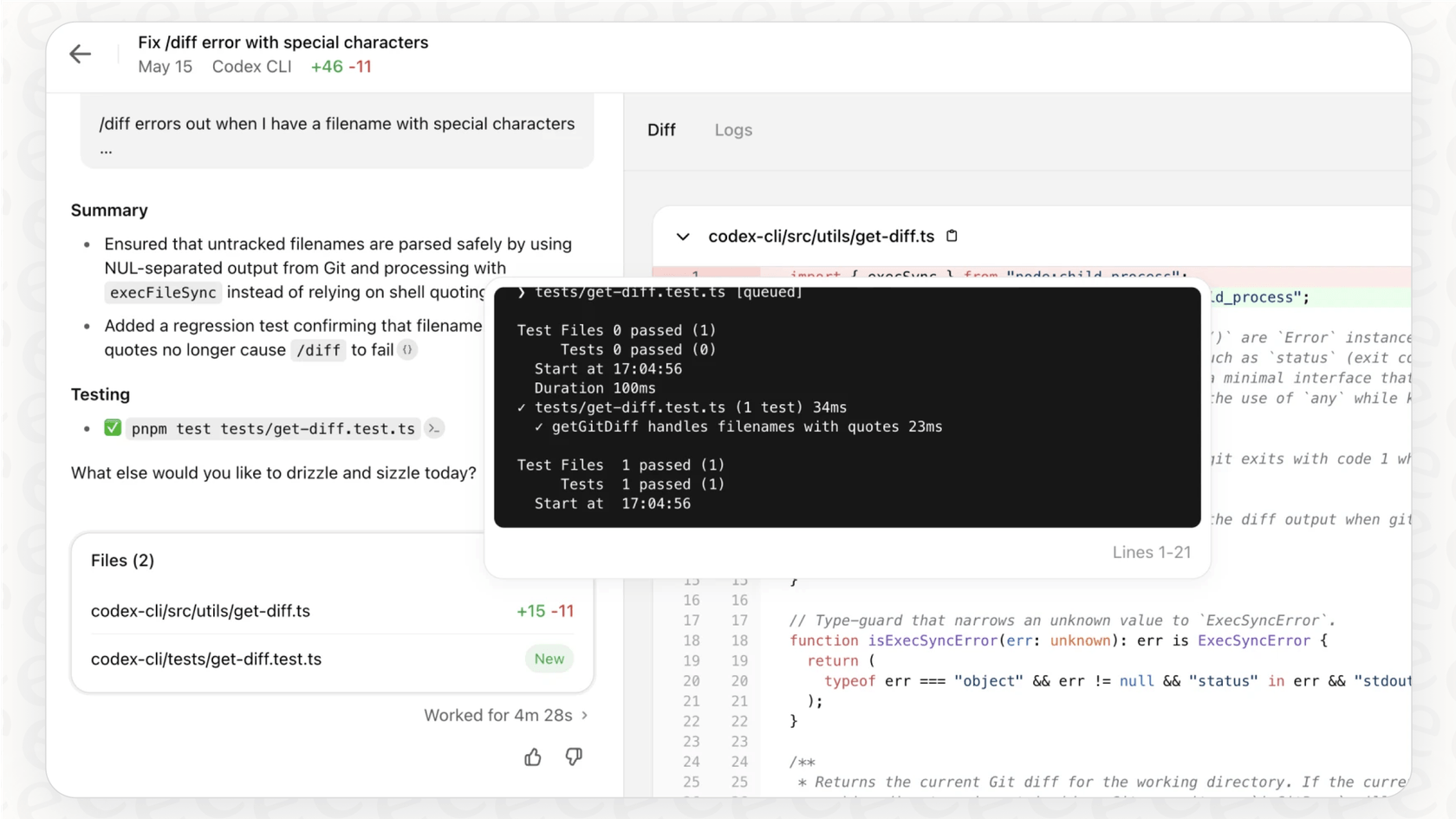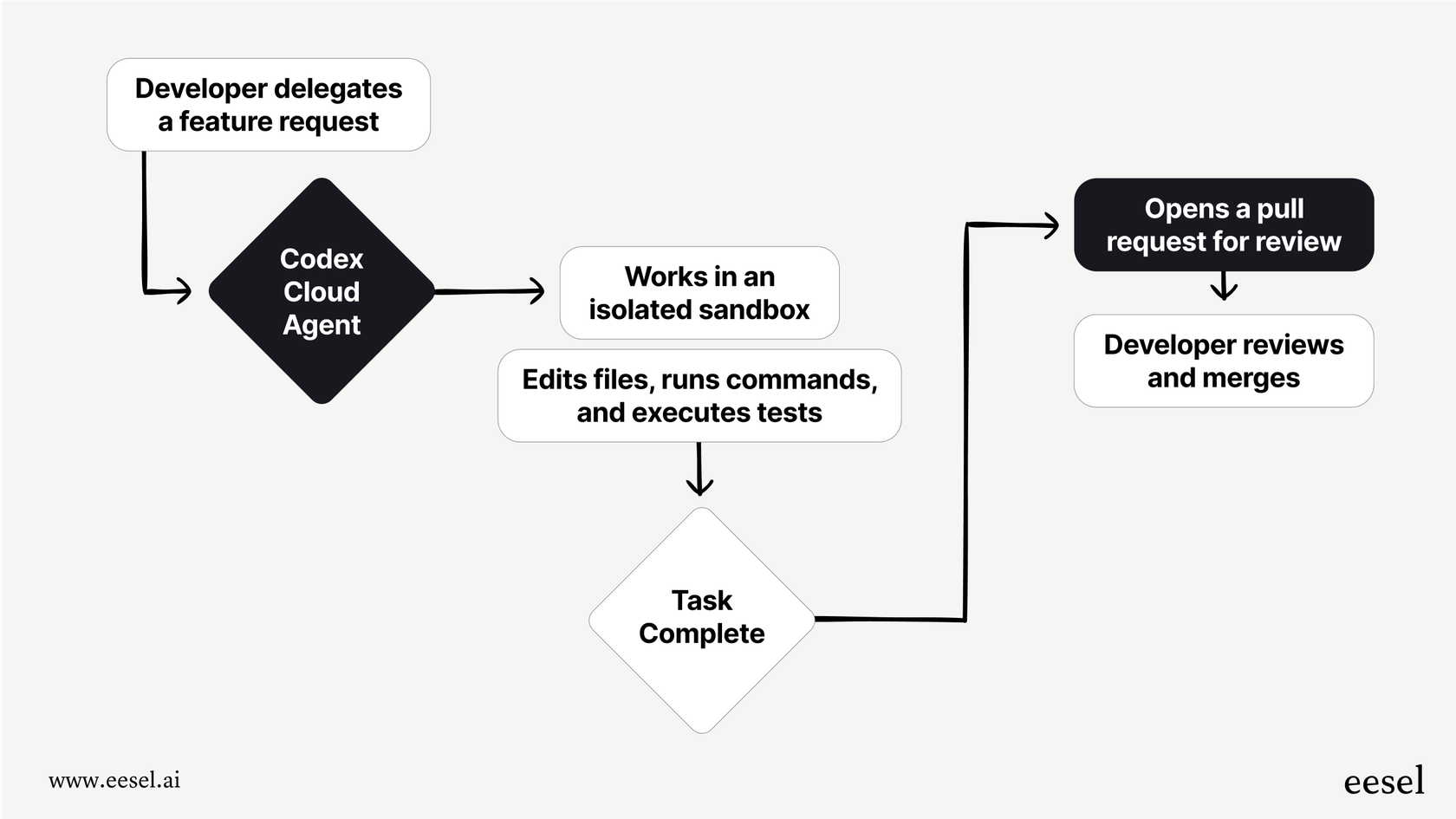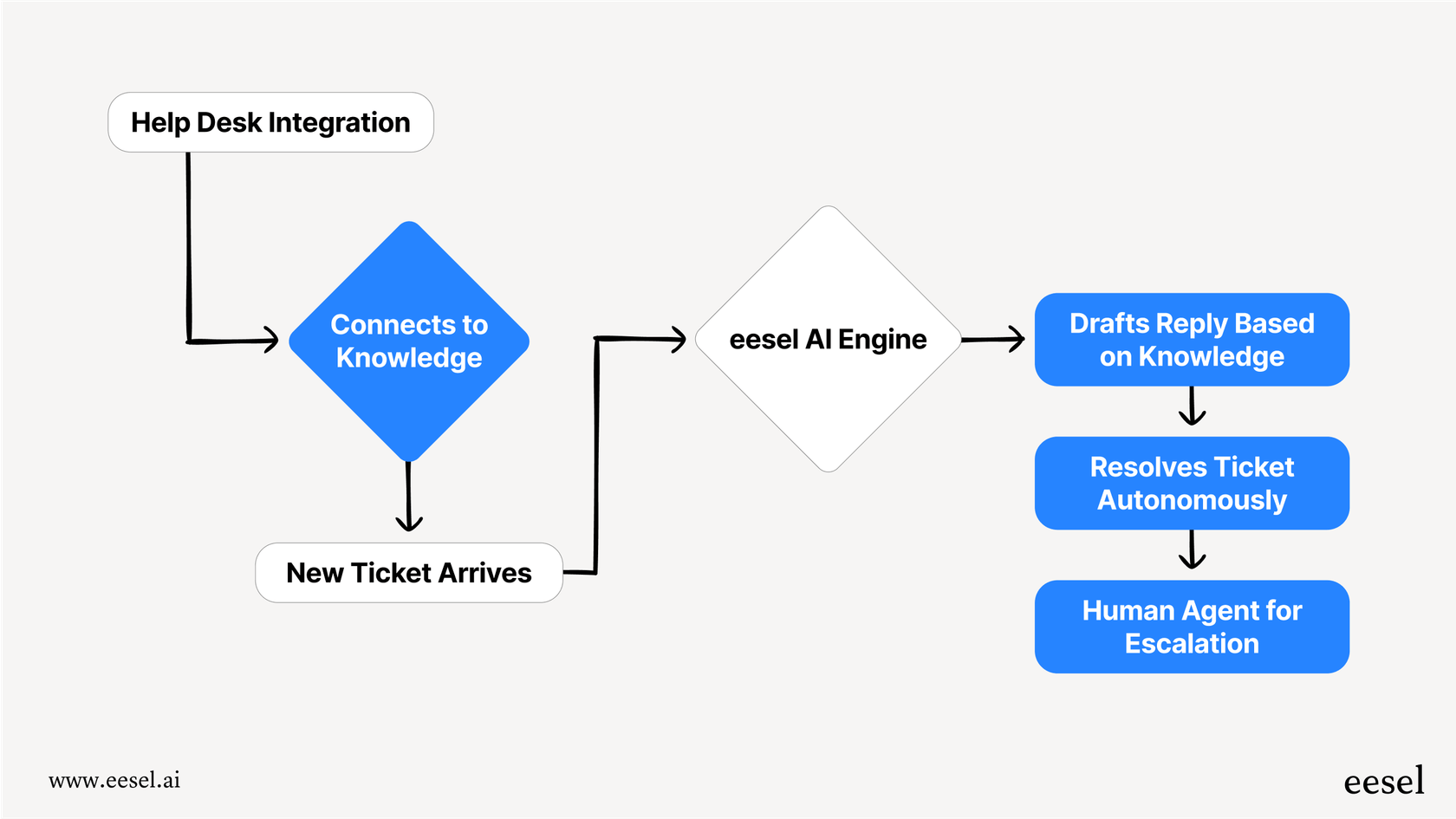
It feels like AI agents went from a cool developer toy to an essential part of the toolkit almost overnight. They’re not just for fancy autocomplete anymore; they’re popping up everywhere, from writing code to running daily business tasks.
This guide is a hands-on look at what happens when you mix developer tools like OpenAI Codex with browser-based coding environments like StackBlitz. We’ll get into how they work together to help you build and launch prototypes faster than you thought possible. But we’re also going to be honest about where they hit their limits and show you how the same AI principles are being used in a more focused way to solve real-world problems in customer support and internal knowledge management.
The core components of OpenAI Codex integrations with StackBlitz
The whole AI boom has changed how we think about coding. It's now possible to build a working app by describing it in plain English. Tools like OpenAI Codex and StackBlitz are leading this charge, giving us a peek into a future where software development is more about conversation and less about boilerplate.
What is OpenAI Codex?
Think of OpenAI Codex as a translator that’s fluent in both human languages and dozens of programming languages. It’s an AI model from OpenAI that takes your natural language instructions and turns them into code. Its main job is to help developers write new code, clean up existing functions, squash bugs, or even just explain what a complicated snippet of code actually does. You can use it through tools like the OpenAI Codex CLI or by integrating it into other platforms.

What is StackBlitz?
StackBlitz is a full-blown IDE that runs entirely in your browser, which means you can skip the headache of setting up a local development environment. You can spin up a complete coding environment in seconds. One of its standout features is "bolt.new", an AI-native builder that lets you create entire applications just by chatting with it. The biggest plus is speed. You can go from an idea to a running app without ever leaving your browser, which is perfect for banging out a quick prototype or working with a team.
The power of OpenAI Codex integrations with StackBlitz
When you combine a code-generating AI like Codex with a slick, in-browser environment like StackBlitz, the experience is pretty amazing. It's what some people call "vibe coding," where you just focus on what you want to build and let the AI figure out the how.
Use case 1: Quick prototypes and MVPs
One of the best things about OpenAI Codex integrations with StackBlitz is how fast you can spin up and test new ideas. A developer can pop open a browser, describe an app in a couple of sentences, and watch the AI scaffold everything from the frontend UI to the backend API. You could say, "create a to-do list app with a Supabase backend," and a few minutes later, you’ve got a functional minimum viable product (MVP). This slashes the time it takes to build, test, and see if an idea has legs.

Use case 2: Coding together in the browser
These tools are also great for teamwork. A cloud-based IDE means everyone on the team is using the exact same, pre-configured setup. You can finally say goodbye to the classic "well, it works on my machine" problem. And with an AI assistant in the mix, pair programming gets a nice boost. The agent can churn out boilerplate code, suggest bug fixes, or refactor a function while the developers focus on the tricky logic.
Use case 3: Learning and messing around
If you’re trying to learn a new framework or language, these tools are a fantastic resource. Instead of slogging through hours of documentation just to get a project set up, you can ask the AI to build a small project for you. It gives you a real, working example to poke around in and learn from, which is a much more practical way to get started without getting stuck on the initial configuration.
Hitting the "prototype ceiling"
While tools like Codex and StackBlitz are great for getting a project started, they tend to run into a wall when it's time to build something that's truly production-ready. We like to call this the "prototype ceiling."
The lack of business context
General-purpose coding models like Codex learn from massive, public codebases. They’re excellent at spotting common patterns but have no idea about your company’s specific needs. They don't know about your internal APIs, your security rules, your brand's tone of voice, or your customer history.
This context gap means the code they produce is almost always generic. It needs a lot of manual tweaking, security checks, and review from experienced developers before it’s safe to deploy. The AI can frame the house, but you still have to check the foundation, wiring, and plumbing yourself.
The headache of production and maintenance
AI-generated code can sometimes come with hidden issues. It might use old dependencies with known security holes, introduce subtle bugs, or create tangled code that’s a nightmare to fix later on.
At the end of the day, the developer is still on the hook for the quality, security, and long-term health of the code. The AI might speed up the first 10% of the work, but the other 90%, testing, hardening, and making it work with your actual business logic, is still on you and your team.
How AI agents go beyond prototyping
The idea of pairing an AI agent with an integration is powerful, but it really shines when applied to business workflows where context and reliability are everything.
Getting the context right with specialized knowledge
This is where a specialized AI platform like eesel AI makes a difference. Unlike a generic coding assistant, eesel AI is built to securely connect to and learn from your company’s internal knowledge. It doesn’t just read public code; it trains on your past support tickets, help center articles, and internal docs from places like Confluence and Google Docs. This lets it give answers that are spot-on, accurate, and in your company’s voice, a level of detail that general developer tools just can't provide.

Deploying with confidence
Pushing unvetted, AI-generated code to production is a gamble. In a business function like customer support, you need things to be safe, predictable, and under your control. That's why eesel AI has a powerful simulation mode. Before you let the AI talk to live customers, you can run it on thousands of your past support tickets. This gives you a data-backed forecast of how it will perform, what its resolution rates will be, and how much it could save you, all without the risk of a messy launch.

Simple setup, powerful results
Developer tools can require a bit of technical wrangling to get going, from managing API keys to setting up environments. In contrast, eesel AI is designed to be radically self-serve. You can connect your helpdesk, whether it's Zendesk or Freshdesk, with a single click and have an AI agent up and running in minutes. This lets non-technical teams set up powerful automation without having to wait for developers to free up.

Pricing and value: General-purpose vs. specialized AI
The real value of an AI tool isn't just about its features, but also about how its pricing fits what you’re trying to achieve.
-
OpenAI Codex: Codex comes with ChatGPT subscriptions like Plus ($20/month) and Pro ($200/month). The catch is that these plans have usage caps, which you can hit pretty fast during heavy development, making the costs a bit unpredictable.
-
StackBlitz (Bolt): StackBlitz has a Free tier, a Pro plan at $20/month, and a Teams plan at $30/user/month. This is priced for individual developers and team collaboration.
-
eesel AI:
| Plan | Effective /mo (Annual) | Monthly AI Interactions | Key Features |
|---|---|---|---|
| Team | $239 | Up to 1,000 | Train on docs, Copilot, Slack integration |
| Business | $639 | Up to 3,000 | Train on past tickets, custom AI Actions, simulation |
| Custom | Contact Sales | Unlimited | Advanced security, multi-agent orchestration |
The main difference here is that eesel AI's pricing is based on a predictable number of interactions and includes the whole product suite (Agent, Copilot, Triage). This is a big departure from many support AI competitors that charge per resolution, which can lead to some nasty surprise bills at the end of a busy month.
Choosing between OpenAI Codex integrations with StackBlitz and specialized AI
Developer agents like OpenAI Codex and platforms like StackBlitz are brilliant for speeding up prototyping and experimentation. They let developers build and iterate faster than ever.
But they’re held back by a basic lack of business context and the manual work required to get their output ready for the real world. For something as critical as customer support or internal IT, a specialized, context-aware platform isn't just a nice-to-have, it's a must. eesel AI offers a secure, reliable, and easy-to-use solution that’s built specifically to understand and automate your unique workflows. The future isn't about finding one AI agent to rule them all; it's about using the right specialized agent for the right job.
Ready to automate your support workflows?
See for yourself how an AI agent built for business can change your customer support. With eesel AI, you can connect your knowledge sources and start automating tickets in minutes. Start your free trial or book a demo with our team.
Frequently asked questions
OpenAI Codex integrations with StackBlitz allow developers to quickly generate functional prototypes and MVPs by describing their ideas in natural language. This "vibe coding" approach dramatically reduces the time from concept to a running application, enabling rapid iteration and validation.
The main challenge is the "prototype ceiling," as OpenAI Codex integrations with StackBlitz lack specific business context, leading to generic code. This requires extensive manual tweaking, security checks, and developer review to ensure production readiness, often introducing hidden issues and maintenance headaches.
Yes, OpenAI Codex integrations with StackBlitz are well-suited for teamwork because StackBlitz provides a consistent, cloud-based IDE for all collaborators. The AI can assist with boilerplate code, bug fixes, or refactoring, enhancing pair programming by letting developers focus on complex logic.
OpenAI Codex integrations with StackBlitz offer a fantastic learning environment by allowing users to instantly generate working example projects. This hands-on approach bypasses tedious setup, enabling learners to directly explore and understand new frameworks or languages in a practical, interactive way.
OpenAI Codex integrations with StackBlitz rely on general public codebases, making their output generic and lacking awareness of internal APIs or security rules. In contrast, specialized AI platforms like eesel AI train securely on a company's unique internal knowledge, providing context-aware and accurate solutions for specific business workflows.
OpenAI Codex integrations with StackBlitz excel at tasks like rapid prototyping, building minimum viable products, and exploring new technologies. They are ideal for quick experimentation, learning, and collaborative development where speed and ease of setup are priorities.
Share this post

Article by
Stevia Putri
Stevia Putri is a marketing generalist at eesel AI, where she helps turn powerful AI tools into stories that resonate. She’s driven by curiosity, clarity, and the human side of technology.







